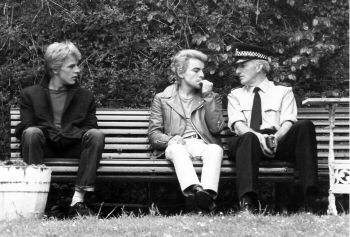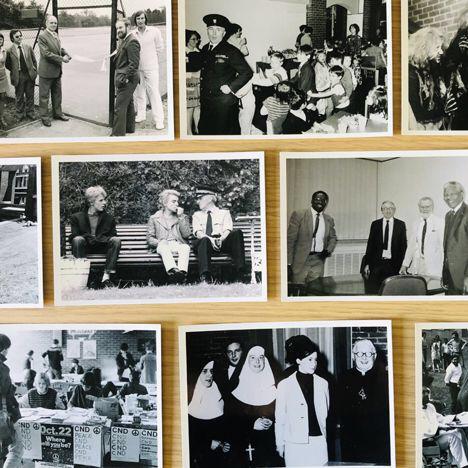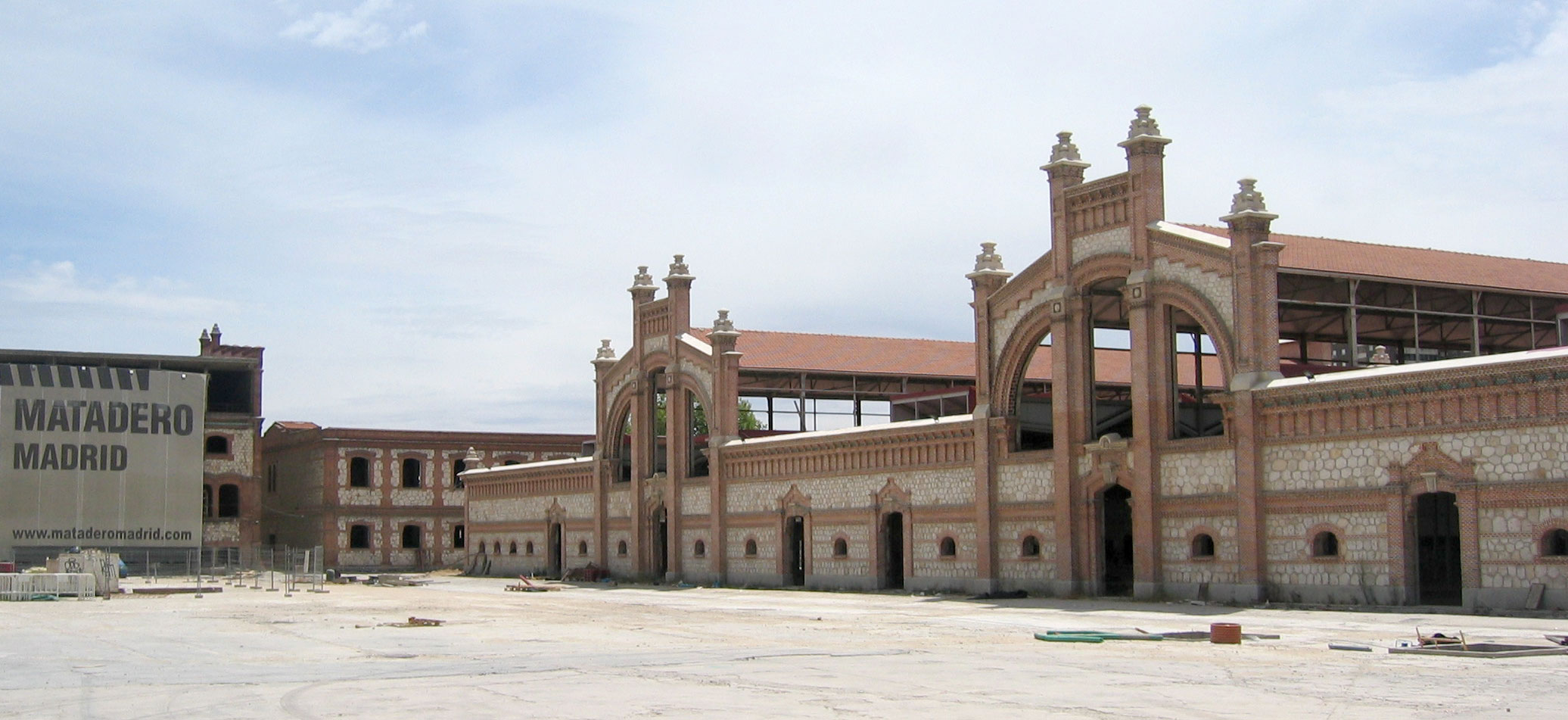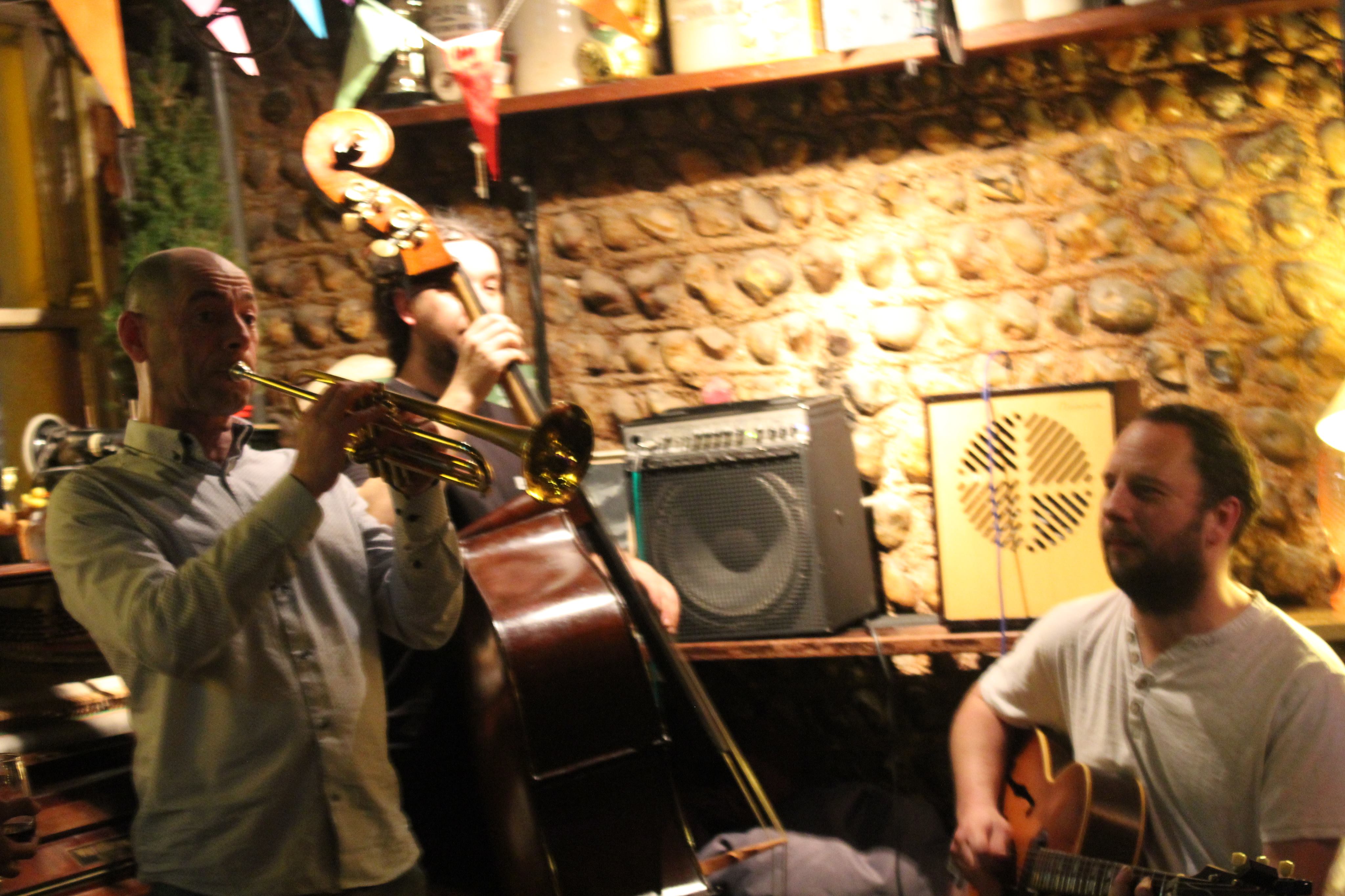The last 60 years at The University of Sussex have been curated through a collection of art pieces found on campus.
The Postcards series curated by Jeremy Deller, Turner prize winner and Sussex alumnus, spurred me to explore the impact of postcards as a means of storytelling for both the artist and the university. Deller also received additional assistance from Sussex scholars at the time such as Edward Palmer, Art History graduates, and Doctoral Researcher Alice Compton. The series consists of 50 images with contributions from Sussex staff and student alumni. The medium of postcards is perfect for exploring the power of the personal amidst the drudgery and mundane routine of everyday life.
The ubiquitous nature of postcards lends itself to so much more than their everyday practical uses for casual correspondence amongst loved ones. Postcards have the remarkable ability to capture movement and time in a 15cm x 10cm rectangle frame and the weight of handwritten, time-stamped postcards is much greater than what meets the surface. The series is an important part of the art history of the university; looking at the art from the past contributes to who we are as people and how we relate to the world around us.

Much of Jeremy Deller’s art contains political themes and the postcard exhibition curated for the University’s 50th celebration in 2012 is no different. It is a visual representation of university culture and its influence on its surrounding community, society, and historical events. In this postcard series, the donations from previous students and staff members help add a level of intimacy to the project. The series is deeply rooted in the visual which makes it feel universal and accessible even when the moment has long passed.
In between the rows of black and white images, displayed in seaside-style postcard racks, is the postcard image of former South African president Nelson Mandela visiting the university campus; it illustrates but a small part of the university’s progressive history with activism. This image in particular represents a commitment to supporting African liberation movements and its stance against the unjust Apartheid regime beginning in 1973. In Nelson Mandala’s letter to Sussex, he emphasized that it is the power of education that contributes to nation-building and reconciliation. For an international student like myself, the postcard photograph represents the institution’s commitment to educating and supporting students from developing countries like my own.
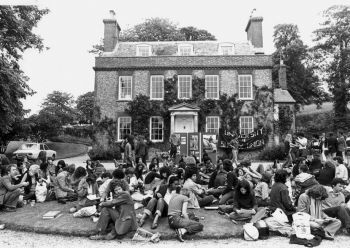
The postcards also feature moments with the former Vice-Chancellor Alasdair Smith, the prominent protest movements of the 1980s, and a video study of former US president George Bush. Other images in the series exhibit more personal and everyday moments on campus like the common room renovations, flyers, petitions, and student activism throughout the years. The project is thoughtful and intentional, Deller has expertly curated the life of the university weaving in memories of activism with the ‘oddities and eccentricities’ of youth and folk culture. Art mediums such as this serve as the visual expression of the human experience.
The postcard series served as a great way to celebrate the existence of the institution and support university involvement with the arts. On a more sentimental note, with the resurgence of nostalgic trends, the celebration of the provocative and unconventional side of university life through postcards allows us to take great comfort in knowing that we are never too far from our past.
